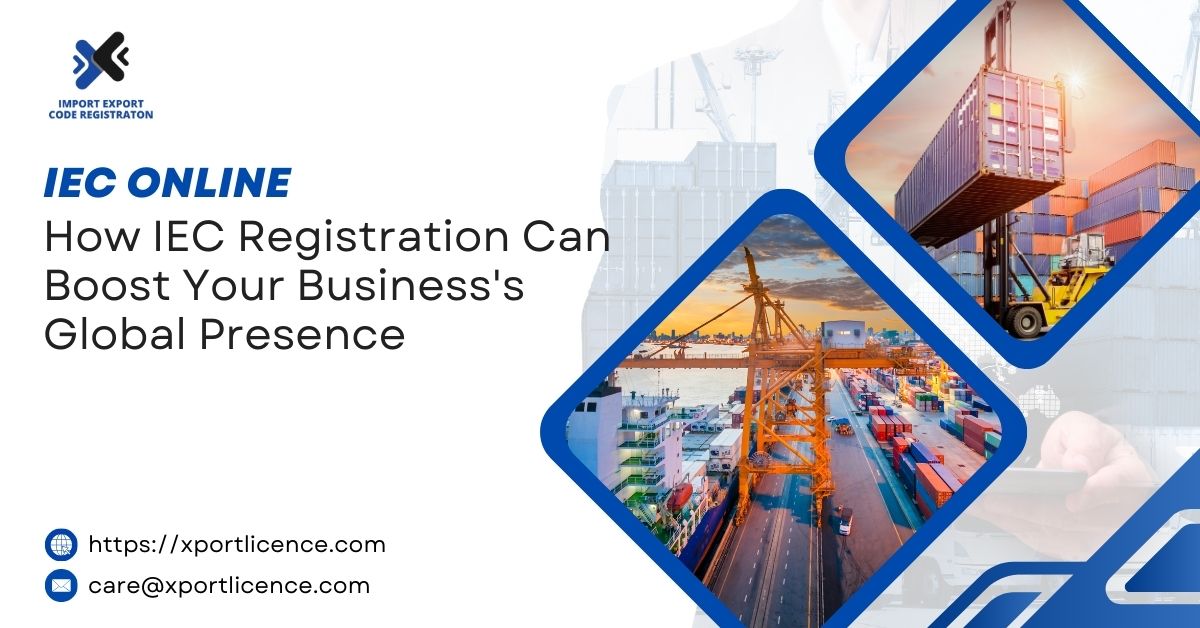Introduction
In an increasingly interconnected world, expanding your business beyond domestic borders can unlock a myriad of opportunities. For Indian businesses, one of the most crucial steps in entering international markets is obtaining an Importer Exporter Code (IEC) registration. IEC registration is not just a regulatory requirement; it serves as a gateway to the global marketplace, enabling businesses to trade across borders with ease. This article delves into the significance of IEC registration and how it can enhance your business’s global presence.
Understanding IEC Registration
The IEC Registration code is a unique 10-digit code issued by the Directorate General of Foreign Trade (DGFT) in India. It is mandatory for businesses involved in import or export activities. Without an IEC, a business cannot engage in international trade. The process of obtaining IEC registration is relatively straightforward, but its implications for a business’s operations are profound.
Who Needs IEC?
IEC is required for any business or individual looking to import or export goods and services from India. Whether you are a small startup or a large corporation, IEC registration is a prerequisite for engaging in international trade. Even e-commerce platforms that facilitate cross-border trade need an IEC to operate legally.
The Role of IEC in Enhancing Global Presence
Facilitating International Trade:- IEC registration is the first step in enabling your business to engage in international trade. It acts as a passport that allows businesses to enter the global market. With IEC, your business can import raw materials, machinery, or other goods from foreign suppliers, and export finished products to international customers. This not only opens up new revenue streams but also enhances your business’s visibility on a global scale.
Building Credibility with International Partners:- Having an IEC registration adds credibility to your business in the eyes of international clients, suppliers, and financial institutions. It serves as proof that your business is legitimate and compliant with Indian trade regulations. This credibility is crucial when negotiating deals, securing partnerships, and building long-term relationships with global entities.
Access to Government Benefits and Schemes:- The Indian government offers various incentives, subsidies, and schemes to encourage businesses to participate in international trade. These benefits are often accessible only to businesses with IEC registration. For instance, schemes like the Merchandise Export from India Scheme (MEIS) and the Service Export from India Scheme (SEIS) provide financial rewards to exporters based on their IEC. These benefits can significantly reduce the cost of doing business internationally, making your products more competitive in the global market.
Simplifying Compliance with International Regulations:- Different countries have different regulations and standards for importing and exporting goods. IEC registration helps streamline compliance with these international trade laws. With an IEC, your business can more easily navigate the complex landscape of customs, tariffs, and trade agreements. This reduces the risk of legal issues and ensures that your business operates smoothly across borders.
Enhancing Digital Presence:- In the digital age, a strong online presence is key to reaching international customers. IEC registration enables businesses to list their products on global e-commerce platforms and online marketplaces. Additionally, it allows businesses to integrate with international payment gateways, making it easier to transact with global customers. By leveraging digital tools and platforms, businesses can tap into a wider audience and boost their global presence.
Expanding Business Networks:- IEC registration opens the door to a vast network of international trade bodies, industry associations, and business forums. These networks provide valuable opportunities for networking, collaboration, and knowledge sharing. By participating in global trade events and exhibitions, businesses can showcase their products to a broader audience, learn from industry leaders, and establish connections that can lead to new business opportunities.
Improving Supply Chain Efficiency:- A well-structured supply chain is crucial for the success of any international business. IEC registration allows businesses to work with foreign suppliers, manufacturers, and logistics providers, ensuring a seamless flow of goods and services across borders. This can lead to improved efficiency, cost savings, and faster delivery times, all of which contribute to a stronger global presence.
Scaling Your Business Globally:- With IEC registration, businesses are not limited to the domestic market. They can explore new markets, test different strategies, and scale their operations on a global level. By diversifying their market base, businesses can reduce their dependence on local markets and mitigate risks associated with economic fluctuations in a single region.
challenges:
-
Regulatory Compliance: Staying updated with changes in trade regulations and ensuring ongoing compliance can be challenging, especially for small businesses.
-
Documentation: Proper documentation is crucial. Any discrepancies can lead to delays in obtaining the IEC or issues during international trade.
-
Market Research: Entering a global market requires thorough research and understanding of the target market’s needs, culture, and regulations.
Note: To renew your Import Export Code, click here – Renew IEC Code Online
Conclusion
IEC registration is more than just a legal requirement for international trade; it is a powerful tool that can significantly enhance your business’s global presence. From facilitating trade and building credibility to accessing government benefits and expanding your network, the advantages of having an IEC are manifold. For businesses aiming to scale their operations globally, obtaining IEC registration is a critical step toward achieving long-term success in the international marketplace.

